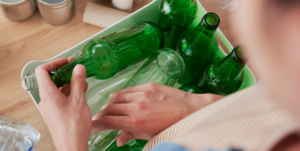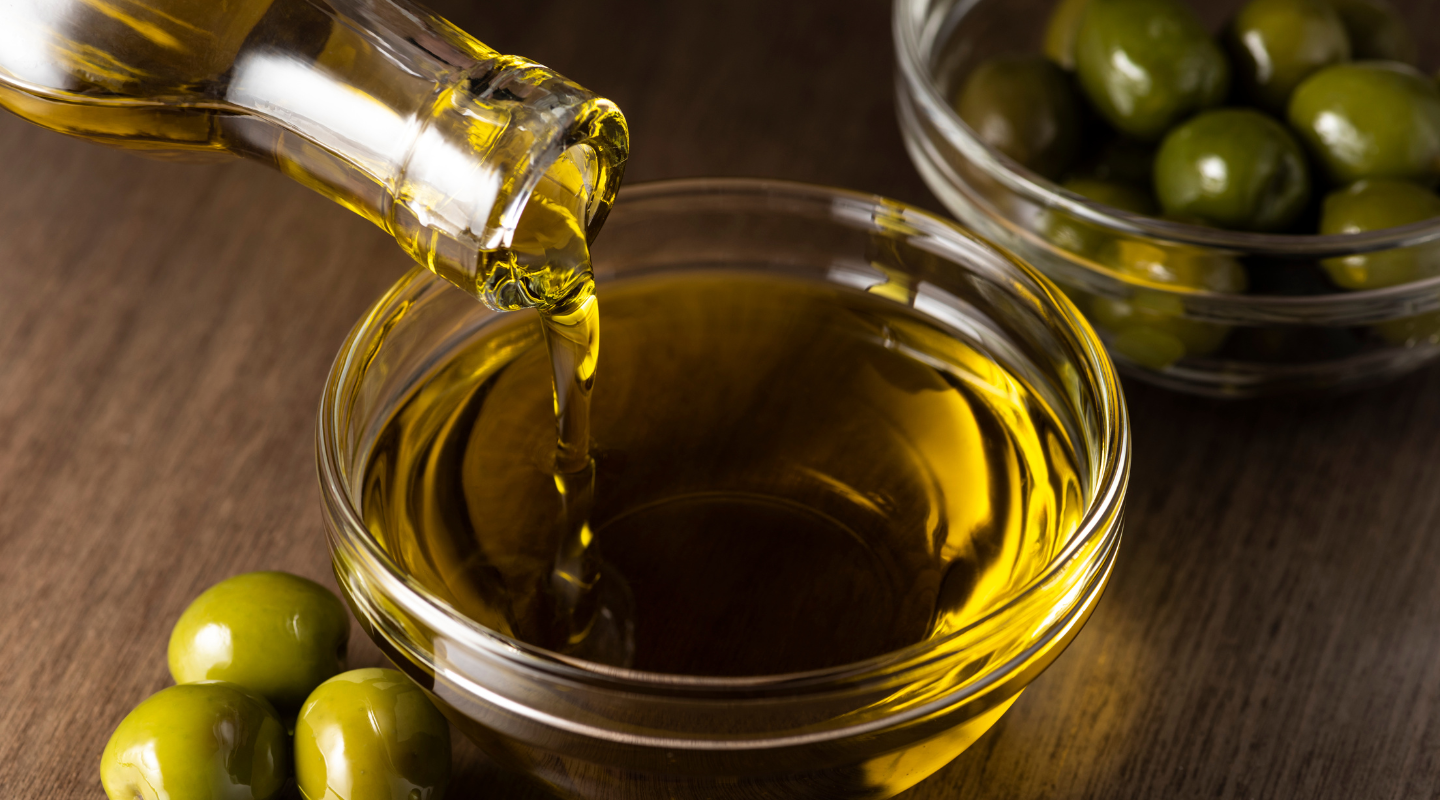The foundation of a healthy Mediterranean diet, olive oil is an iconic European product and has come to be known as ‘liquid gold’. In fact, the EU is the largest producer and consumer of olive oil in the world. Olive trees are grown in Greece, Italy, Spain, Portugal, France, Cyprus, Slovenia and Malta – where olive oil is a core part of both the local cuisine, and an important part of a local circular economy.
How can you recognise a high quality olive oil?
✨ Appearance:
Look out for a bright golden-green hue – this shows the olives were ripe enough when picked.
The oil should be of medium fluidity and body.
? Smell:
Scent of freshly cut grass and fresh olives.
An odourless EVOO is old or counterfeit.
? Taste:
Predominantly fruity aroma, with bitter and spicy notes and a sweet aftertaste.
The quality of the oil comes from the olive tree, but the quality and key characteristics must be maintained during storage and packaging. That’s where glass comes in.
***
Rich in history
Glass and olive oil both have long illustrious histories and play central roles in European cultural heritage, making glass the perfect partner to continue the story of olive oil. From Ancient Greece to modern day Europe, containers have always been a key element of olive oil production and consumption.
Historians say olive oil has been made in the Mediterranean for around 5,000 years. In Greek myth, when the city of Atticus (now Athens) sought a patron deity as a ruler, Athena was chosen over Poseidon because she gave the city an olive tree as a gift. The tree provided wood for boats, laurels for winning athletes and olive oil – all highly significant and symbolic parts of Greek society. As Greek influence spread across Europe, so did olive oil. First stored in elegant amphorae, olive oil needed a new container better suited to travelling when it started to be exported, and glass proved to be the perfect choice. Olive oil was then stored in glass demijohns which were more robust, more hygienic and more reasonably-priced.
Fast forward to the twentieth century, and the concept of designing containers to satisfy the customer took precedence. While previously, glass was ideal for being able to carry large quantities of oil, now the container had to appeal to the consumer. Fortunately, their longstanding history, elegant associations and proven protective characteristics meant that glass bottles were an outwards assurance of the quality of the product inside.
***
Supporting a healthy lifestyle
What’s more, olive oil stored in glass promotes a healthy lifestyle: made from ingredients found in nature, glass packaging forms a natural barrier against external contamination and safely preserves its contents for longer. Glass is one of the few containers that does not leach chemicals into its contents, meaning olive oil in glass is safer and healthier.
The Mediterranean diet is known globally for its traditional healthy properties. Vegetables, fruits, legumes, nuts, beans, cereals, grains, fish and unsaturated fats are key components, all tied together by olive oil. High-quality extra virgin olive oil contains high levels of natural antioxidants and healthy monounsaturated fatty acids. These help to reduce the risk of cardiovascular and cerebrovascular diseases. It’s possible to have too much of a good thing, though: the total amount of olive oil per person per day should not exceed 25 grams.
Need more convincing? More and more people are recognising that glass is best for olive oil! According to a 2020 survey carried out by Friends of Glass:
? More and more consumers are opting for products packaged in glass: over half of Europeans are choosing more glass packaging than 3 years ago.
? More than 1 in 2 European consumers prefer to buy oil in glass.
? The majority consider glass to be the safest, healthiest and most environmentally friendly form of packaging.
? Glass packaging is seen as better for the environment than other packaging: 2 in 5 consumers choose glass specifically because they perceive it to be more recyclable.
? 1 in 3 buy glass because they consider it better at preventing food contamination and preserving health.
? 31% buy products in glass specifically because they consider glass to give a strong health safety feeling.
? Glass is best for preserving its contents: 42% of Europeans believe glass packaging best addresses food waste.
So the next time you’re reaching for olive oil in the supermarket, remember to choose glass! It protects the product, protects the environment and protects your health, all while celebrating cultural heritage… what more could you want!
What’s your favourite way to consume olive oil?
Let us know – @FriendsofGlass on Twitter, Instagram and Facebook!






